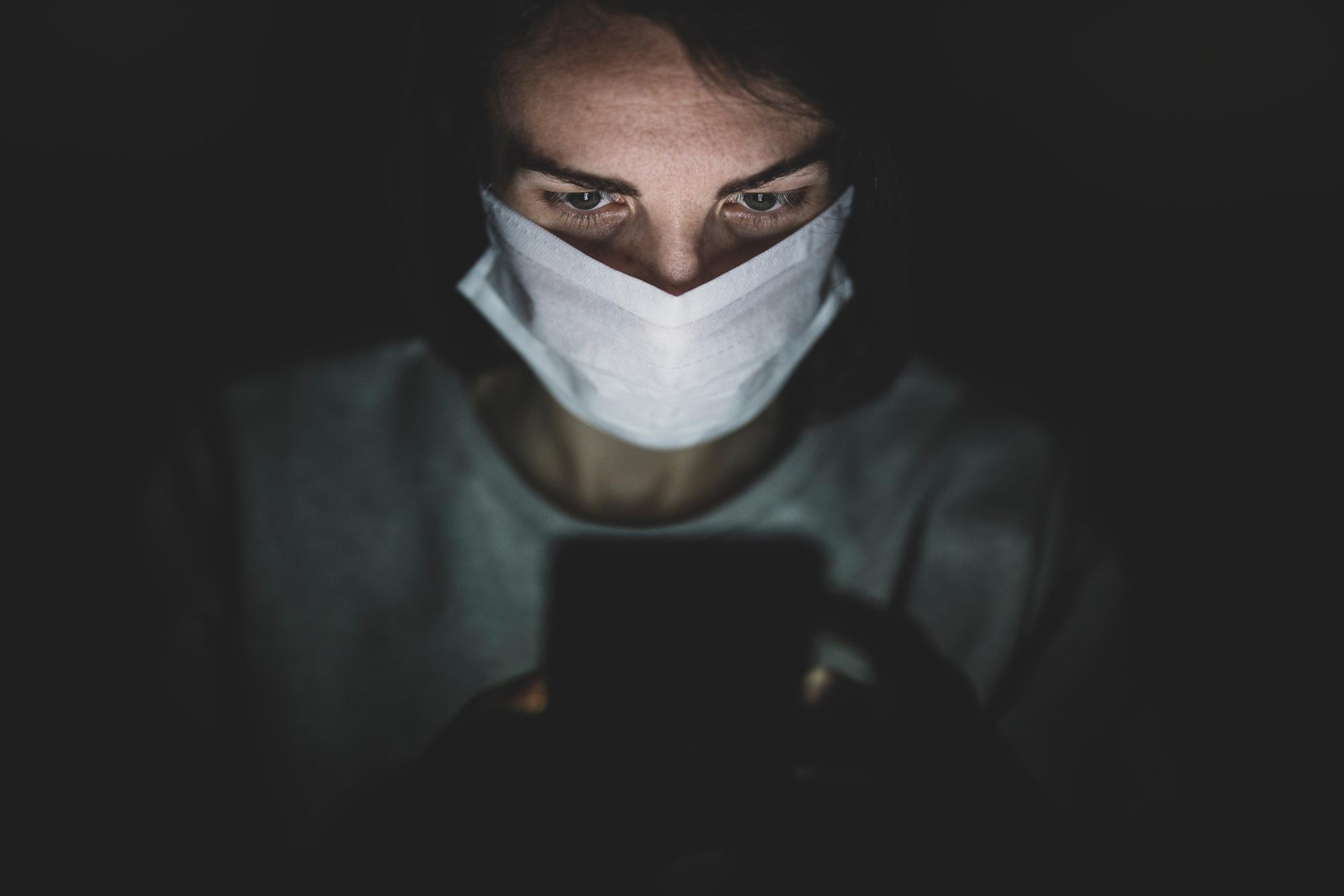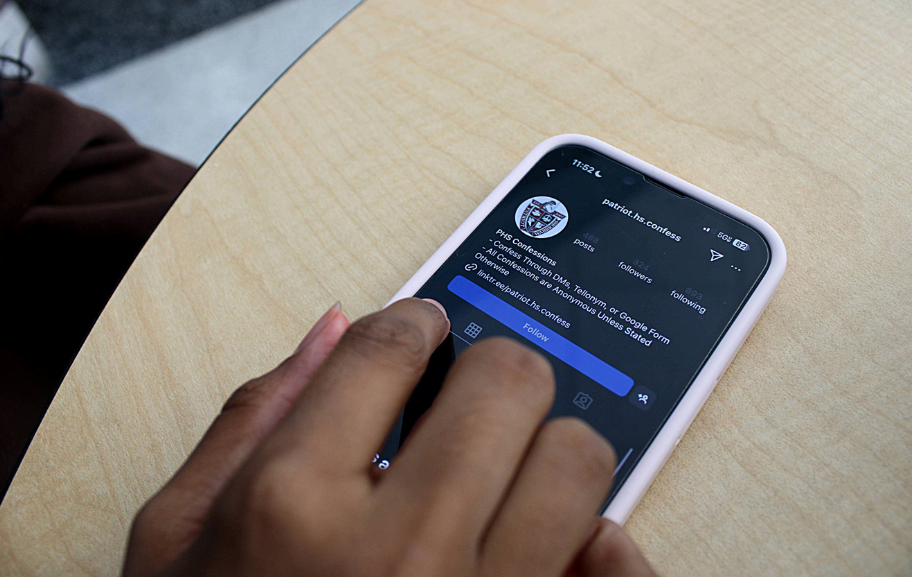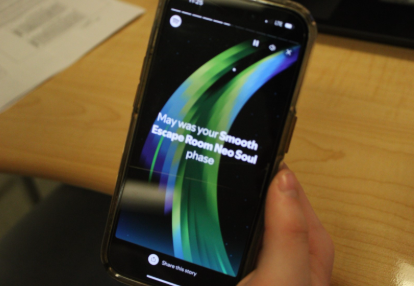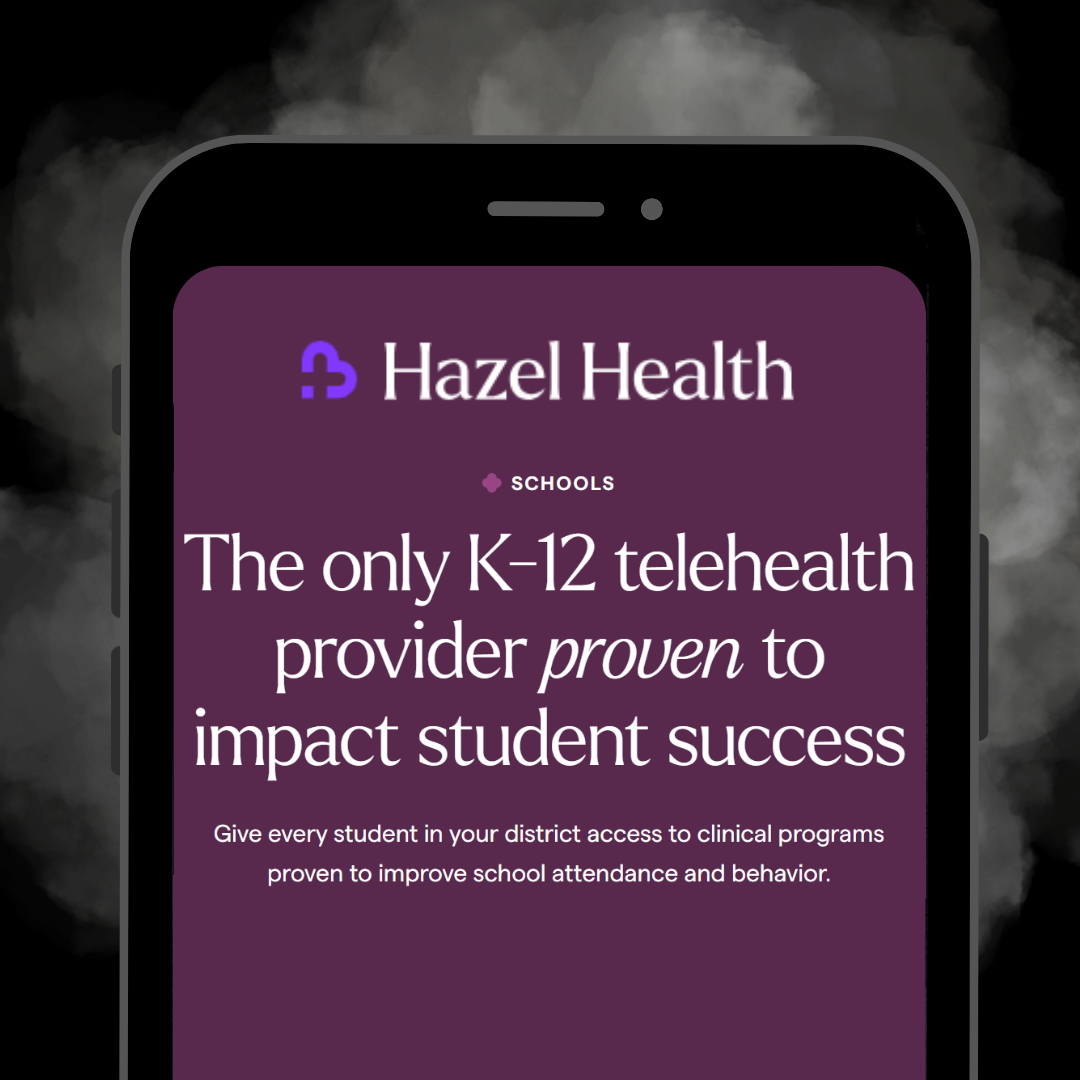“But Mom! Everyone in my class has one, why can’t I get a phone?”
Like most tweens, this was me in late 2015, practically begging my parents to get me the latest and greatest phone at the time, the Galaxy S6 Edge. Suffice it to say, I didn’t get it. In fact, it would be a few years until I got one. Looking back just a couple of years ago phones weren’t as important to people’s lives as they are today, but when I finally got my first phone during the midst of the COVID-19 lockdowns, everything in my life changed.
What’s The Big Deal With Phones Anyway?
By the age of 11, over 53% of kids have a phone, by 18 that figure jumps up to over 90% says a research paper published by Common Sense Media. Phones, now more than ever, have become increasingly intertwined in our lives sucking away more and more of our valuable time. No place is this more evident than in the classroom.
Mobile learning (M-Learning) has continuously existed since the tech boom at the turn of the century; however, acceptance rates for M-learning exploded during the 2019-2020 school year as COVID-19 lockdowns began. Schools across the country struggled to find effective ways to deliver regular classroom education both online and at home. When students began to come back to school for hybrid learning, teachers and staff had no idea how to control kids with their phones. These initial years of lenient phone regulations led to rampant device usage throughout classrooms around the world.
“No Phone Policies” as they’re called were implemented throughout schools across the nation in an attempt to combat widespread device usage. I spoke to Dr. Bishop, our Head Principal at Patriot High School, in order to gain some insight into our very own “No Phone Policy.”
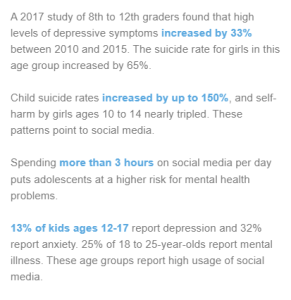
“When we opened in 2011 it was a big piece, a big part of what we put in place. We didn’t want kids to be distracted” said Dr. Bishop, “There were just so many distractions in a classroom and I wanted everyone to be focused.”
As so many of us know COVID hit the US pretty hard, so ultimately when schools began to shut down teachers and administrators scrambled to find a solution to the mess that was virtual school.
“When Covid hit [we] were trying to figure out how are kids going to learn over a computer and how are we going to make sure classroom lessons are good. It just became such 29 months of sheer blehhh” said Dr. Bishop.
As teachers started to adapt to virtual school students simply lost interest in online learning. Dr. Bishop showed me some average grade statistics for both the country and the nation during the lockdowns. According to the NCES’s The Nations Reportcard, the national average test score for math decreased by nine percentage points and reading by five. Dr. Bishop recalls when he first saw average grades during the pandemic.
“When I saw achievement scores in the [2020-2021 school year] . . . I got [reports] from teachers saying [phones were] a complete distraction I knew we needed to make an adjustment, we needed to go back to something,” he alluded.
Social Media Awareness Week
Last school year, Patriot High School had a “Social Media Awareness Week” where students learned the many effects of social media (both good and bad) as well as other impactful topics such as tips for self-management, forming healthy relationships, and the widespread effects of phone usage on the brain. Each day had a different theme relating to the week, but it all culminated with “Phone Free Friday” a sort of experiment that was used by administrations across the county to help determine a new policy for schools going forward. This ultimately led to our phone policy’s current form.
At every step of our interview, Dr. Bishop frequently cited and directed me to many credible sources, each one linking phones to real social, mental, and behavioral problems in high schoolers. He certainly has his facts straight; however, students seem to have differing opinions on the execution.
I polled over 300 Patriot High School students in an attempt to find a consensus on the phone policy, and oh boy did I find one.
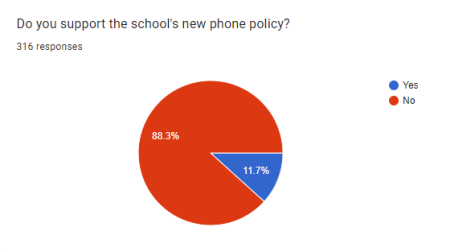
[Section WIP Text Misaligned—change to interactive story element]
A colossal 88% of students reported being dissatisfied and generally unsupportive of the phone policy. Many of the students that I spoke with cited a general lack of freedom and overbearing regulations which lead them to take their stance opposing the policy.
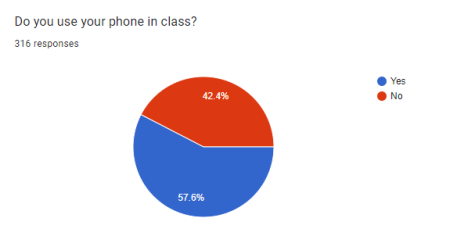
Unsurprisingly a majority of students stated that they do in fact use their phones in class despite numerous signs and code of behavior documents asserting otherwise. Many students defended their position saying that while they do use their phones in class, they often use them during non-instructional time i.e. during a break in a lesson or free time given by teachers (Flex Time).
Many teachers in the building are reasonably “ok” with phones when they don’t disrupt classroom instruction or student participation, however, most other teachers don’t feel the same way.
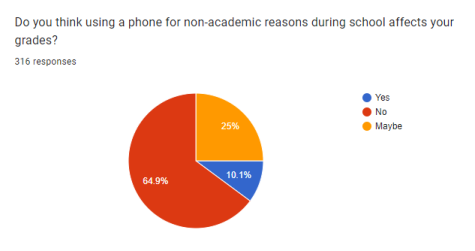
The Psychology Behind It All
Now the metric that was the most surprising was how a majority of students seemed to believe that using their phones non-academically during the school day did not affect their grades or mental wellbeing. Despite over half of the students believing this notion, simple psychology begs to differ.
During the early introduction of the “No Phone Policy,” I spoke with our resident AP Psych and AP Law teacher, Mrs. Warren, to learn more about the brain. I wanted to gain some insight into what really goes on in students’ minds when they’re scrolling the endless pages of TikTok instead of finishing up that history assignment that was due three Mondays ago.
I was particularly interested in seeing how a teen’s brain changed during the crucial years of high school. You’ve probably heard that the human brain is like a muscle, and just like any muscle group, your brain needs to be exercised to prevent atrophy. Your brain consumes about 20% of your body’s energy despite only making up about 2% of its mass. As such it’s a pretty important part of your very being.
Speaking with Mrs. Warren she said,
“The teenage brain is not developed, it’s highly underdeveloped as a matter of fact . . . What’s not fully developed in the brain is something called the frontal lobe. That frontal lobe is [your] executive, decision making, higher order thinking, abstract thinking [part of your brain] it’s your personality.”
The brain does not fully develop in a healthy human being until around the age of 23, as such much of our decision-making as teenagers isn’t made with the higher-level prefrontal cortex, but rather with a part of the brain called the limbic system. The limbic system is a part of our brain that serves and regulates things like our emotions, dopamine levels, and behavior. Once again since a teenager’s frontal lobe isn’t fully developed, we tend to speak before we think, which almost always leads to bad decisions that we come to regret later on.
Mrs. Warren continued by saying that, “[Phones] have that addictive quality that’s like playing a slot machine, a slot machine happens to be one of the most highly addictive forms of behavior. It’s the same thing with your phone, you keep checking to see ‘Do I have a like? Do I have a message? Is somebody contacting me?’”
The fact that cell phones are being compared to one of the most addictive forms of gambling isn’t a good sign. Mrs. Warren goes on to further talk about how phones have a negative impact on our schoolwork.
“[The negative side of phones] is the fact it keeps you guys up too late at night because you’re enjoying it so much,” she stated.
Because so many kids are staying up so late, they don’t get enough sleep. Sleep is one of the most important things your body needs, in fact over 87% of high schoolers don’t get the recommended eight to ten hours of daily sleep. Just ask yourself this, when was the last time you actually got eight to ten hours of quality sleep? Simply put, insufficient sleep leads to drowsiness in school, which leads to poor attention, which leads to so many more bad things.
Although phones are painted in a bad light many genuinely good things can come about from them. Recently two studies following fifth and eighth graders in Chicago and Fairfax districts respectively found a nearly 35% increase in educational interest and found learning experiences improved drastically because of smart device usage in the classroom. So many good things can come about from phones if we just use them in the right way. New phone and device policies have to constantly be developed and changed as technology grows at an ever-increasing rate. Who knows, maybe in a few years students will be attending school, in Virtual Reality. . .
While no, this isn’t the Gettysburg address of articles set out to abolish the “No phone policy” I hope to come back and revisit this topic later in the school year to see just how well the policy is working out. I hope to achieve one thing with this article and it’s simply to spread awareness. During my interview with Dr. Bishop, he mentioned that he felt it was important to explain to the students why the “No Phone Policy” was reimplemented. Its aim was not to punish or to reprimand, but rather to help the student body. To help the student body succeed, thrive, and embody Patriot’s key characteristics.
Character, Leadership, Integrity, Pride


